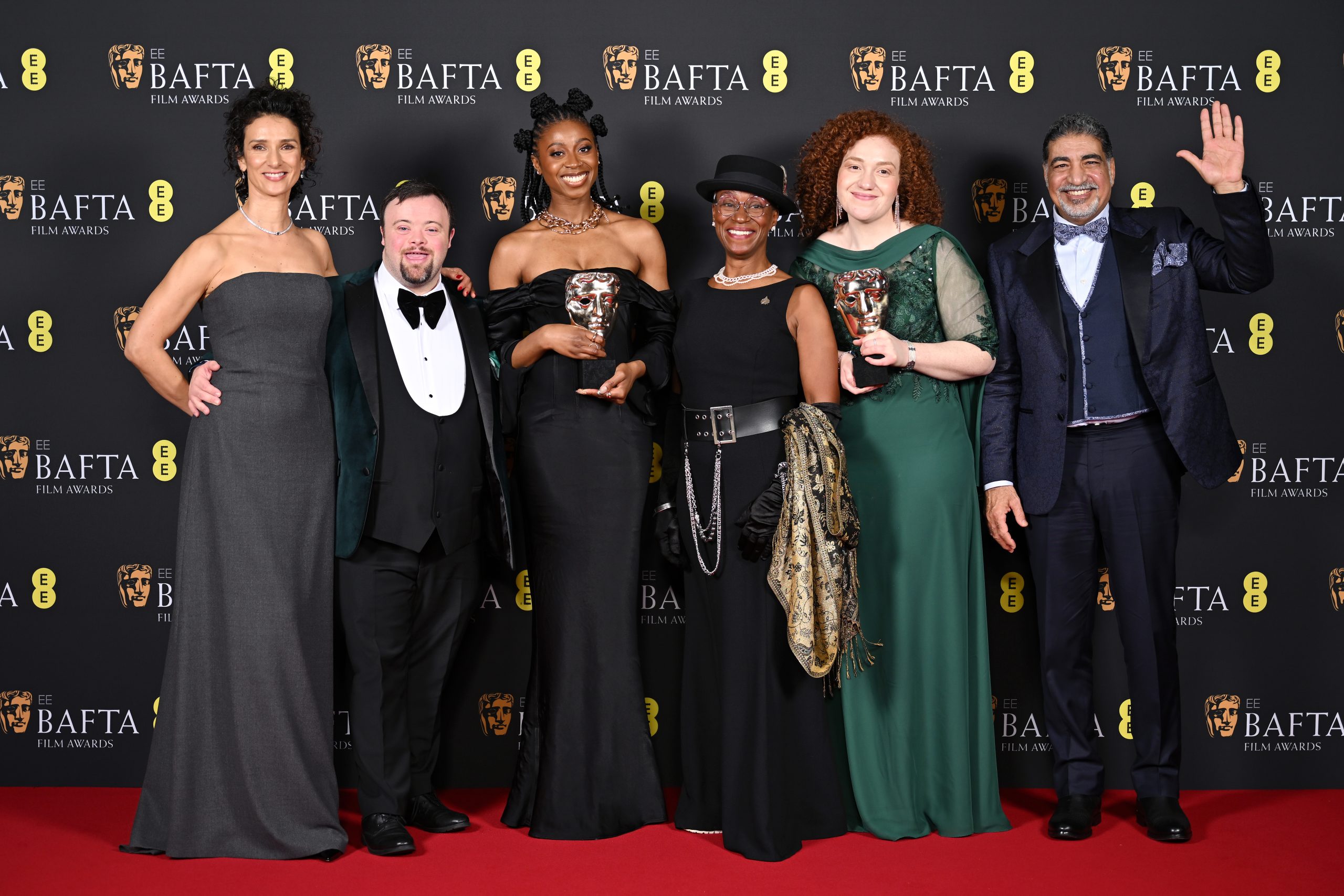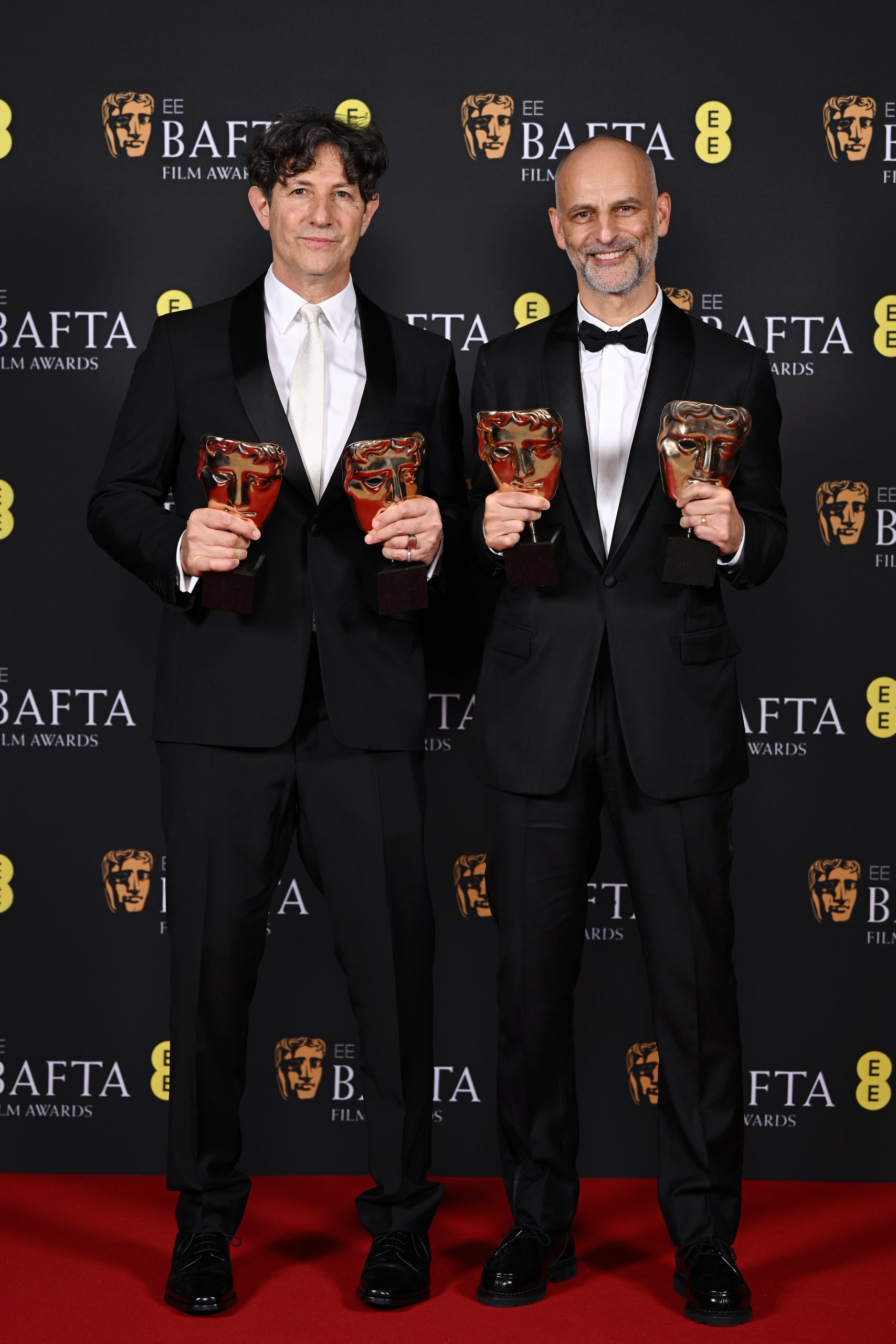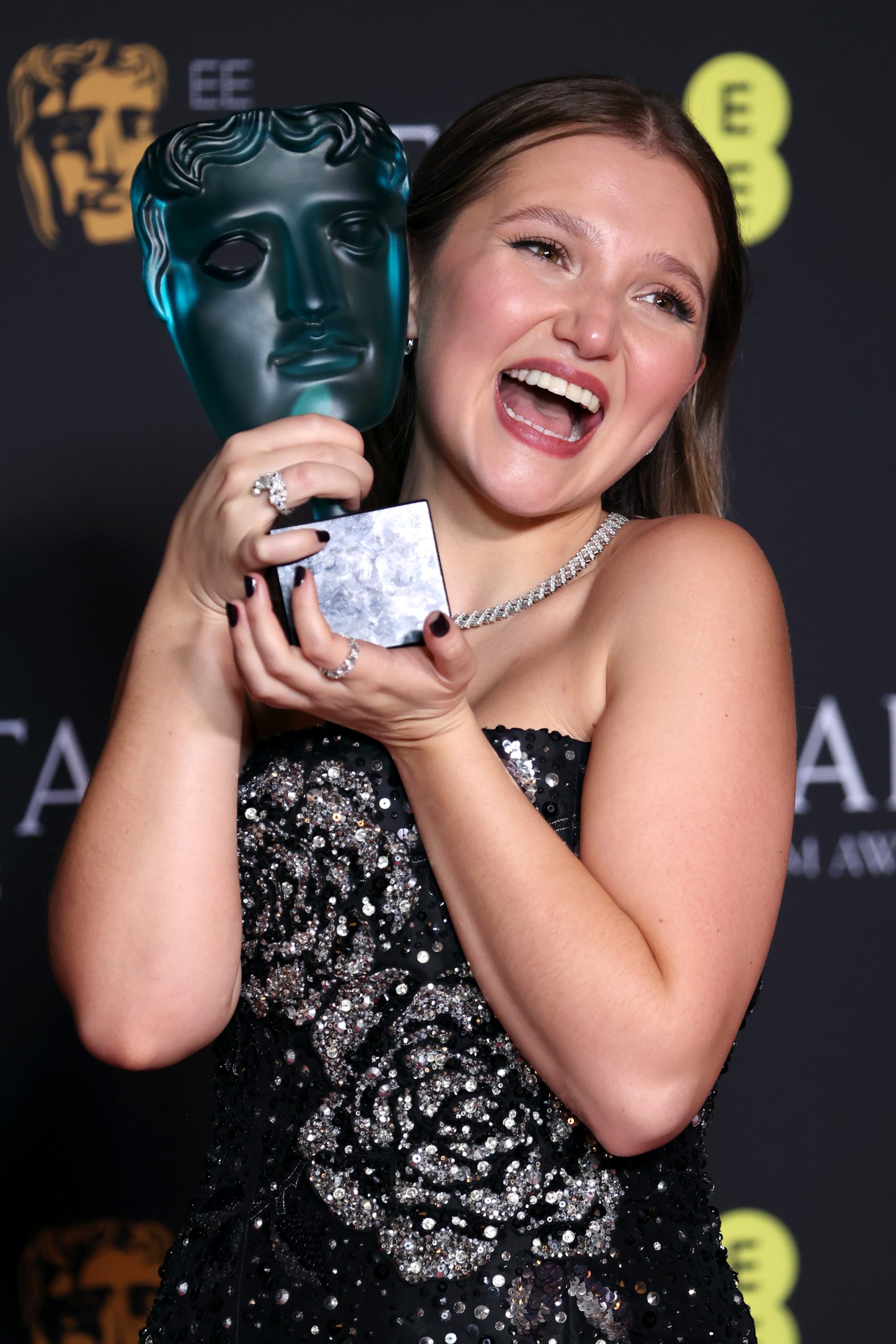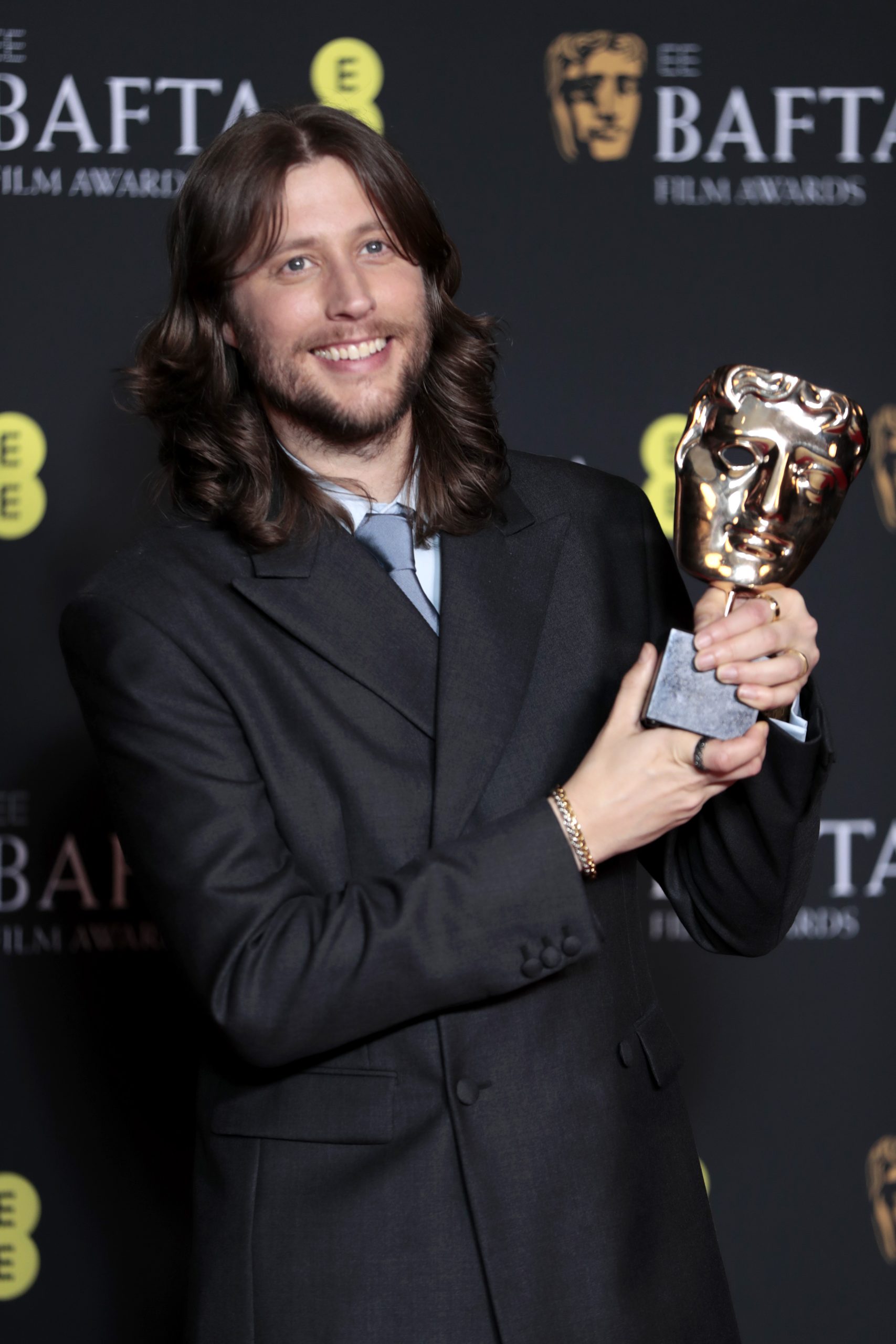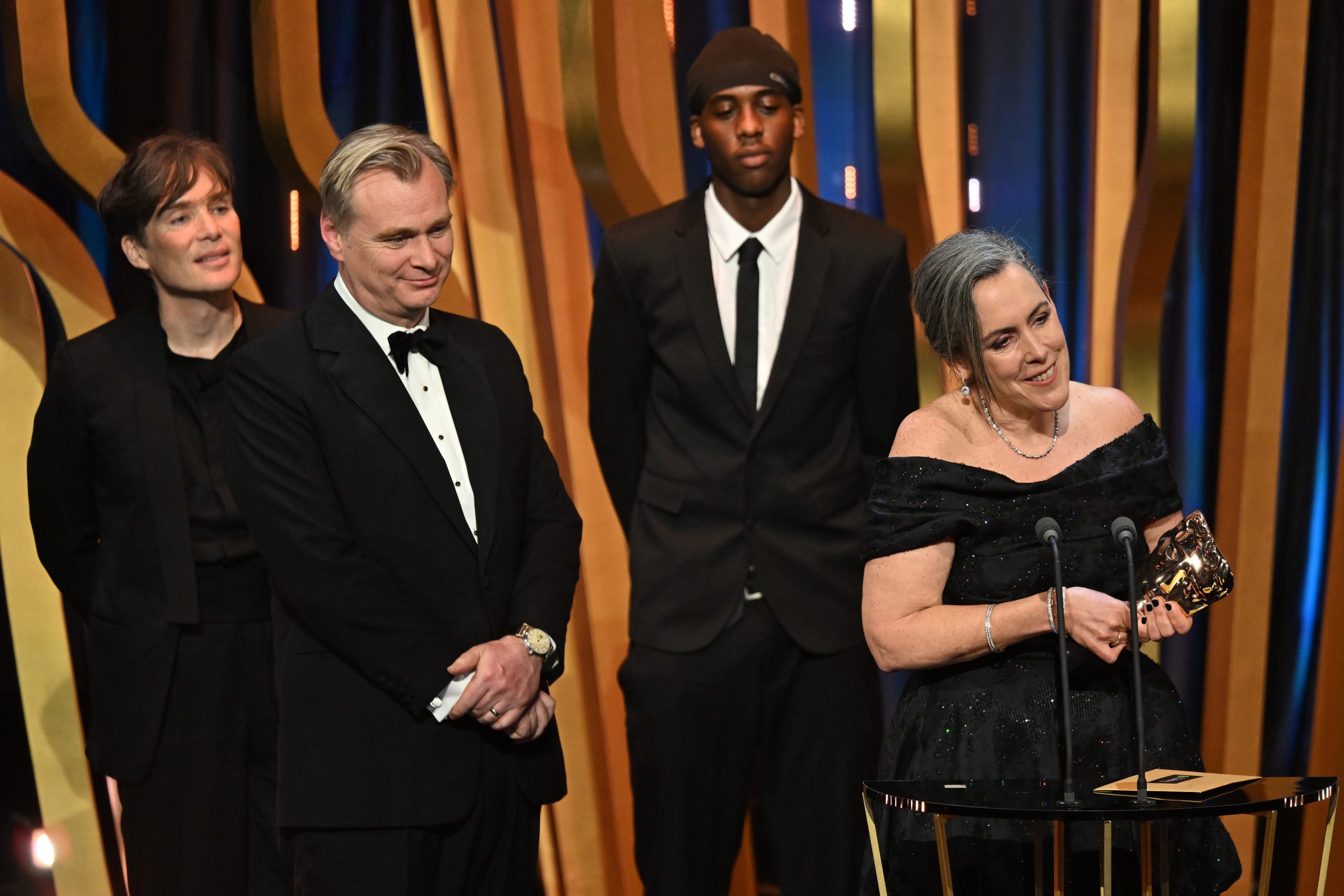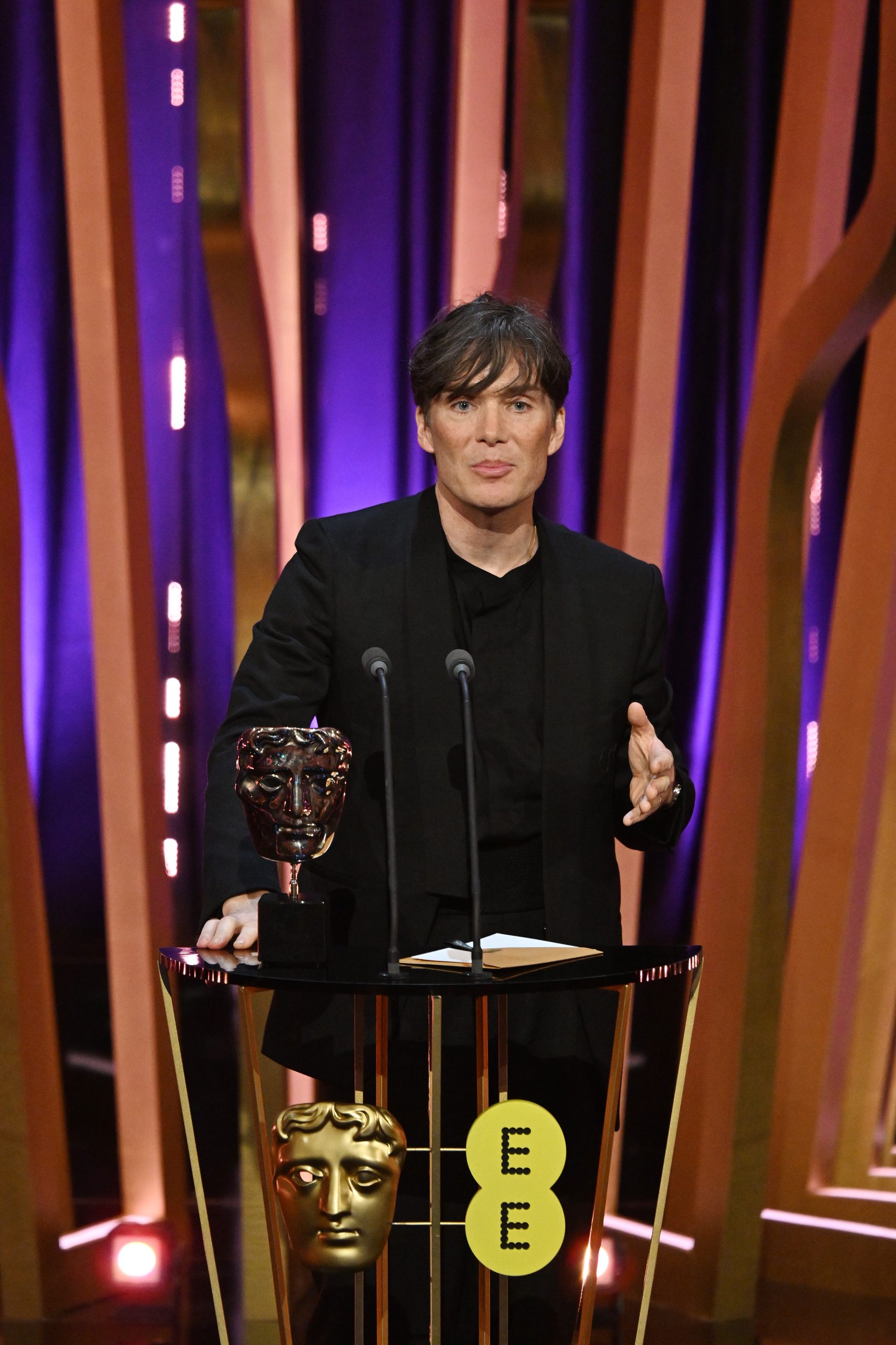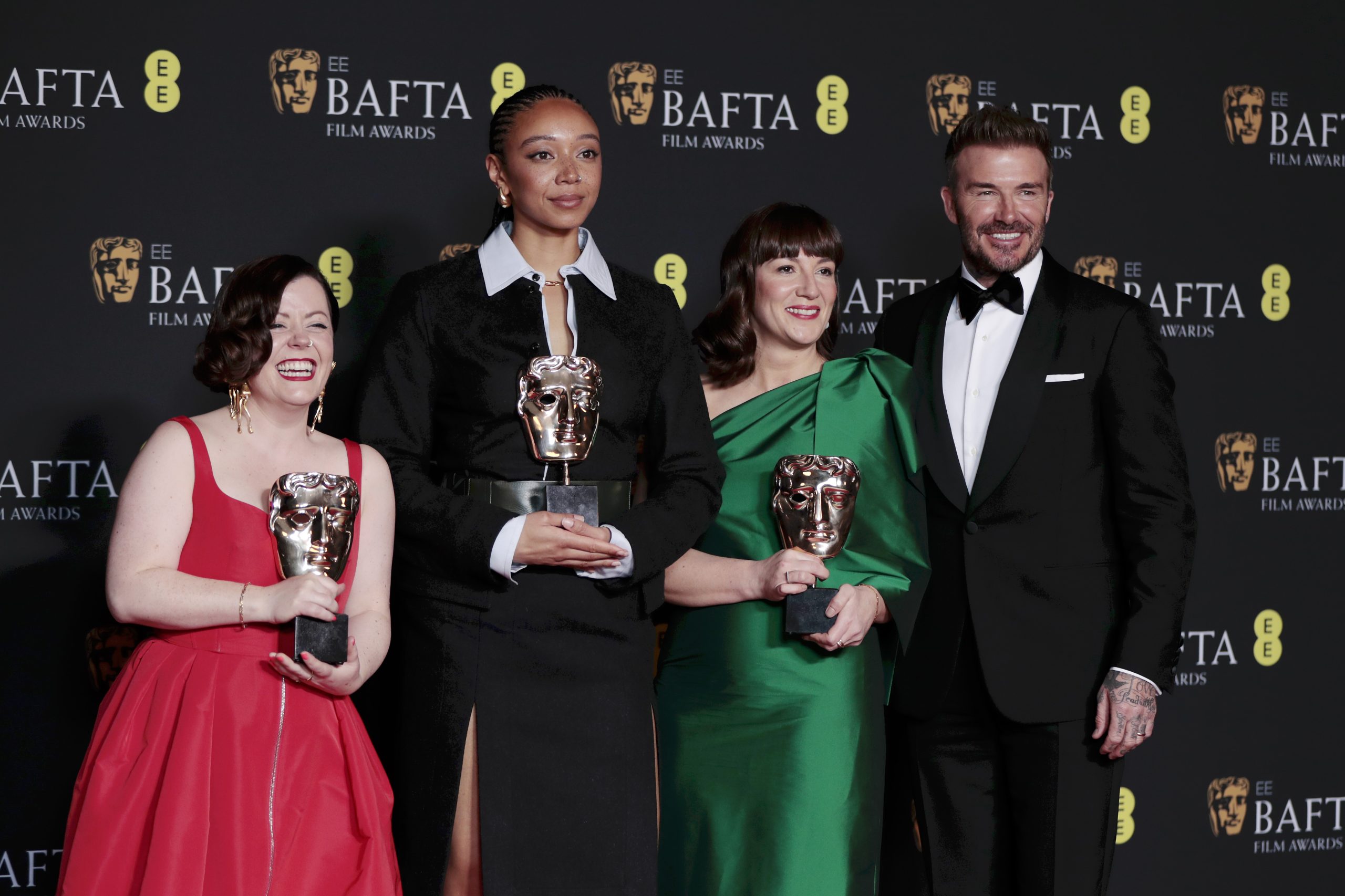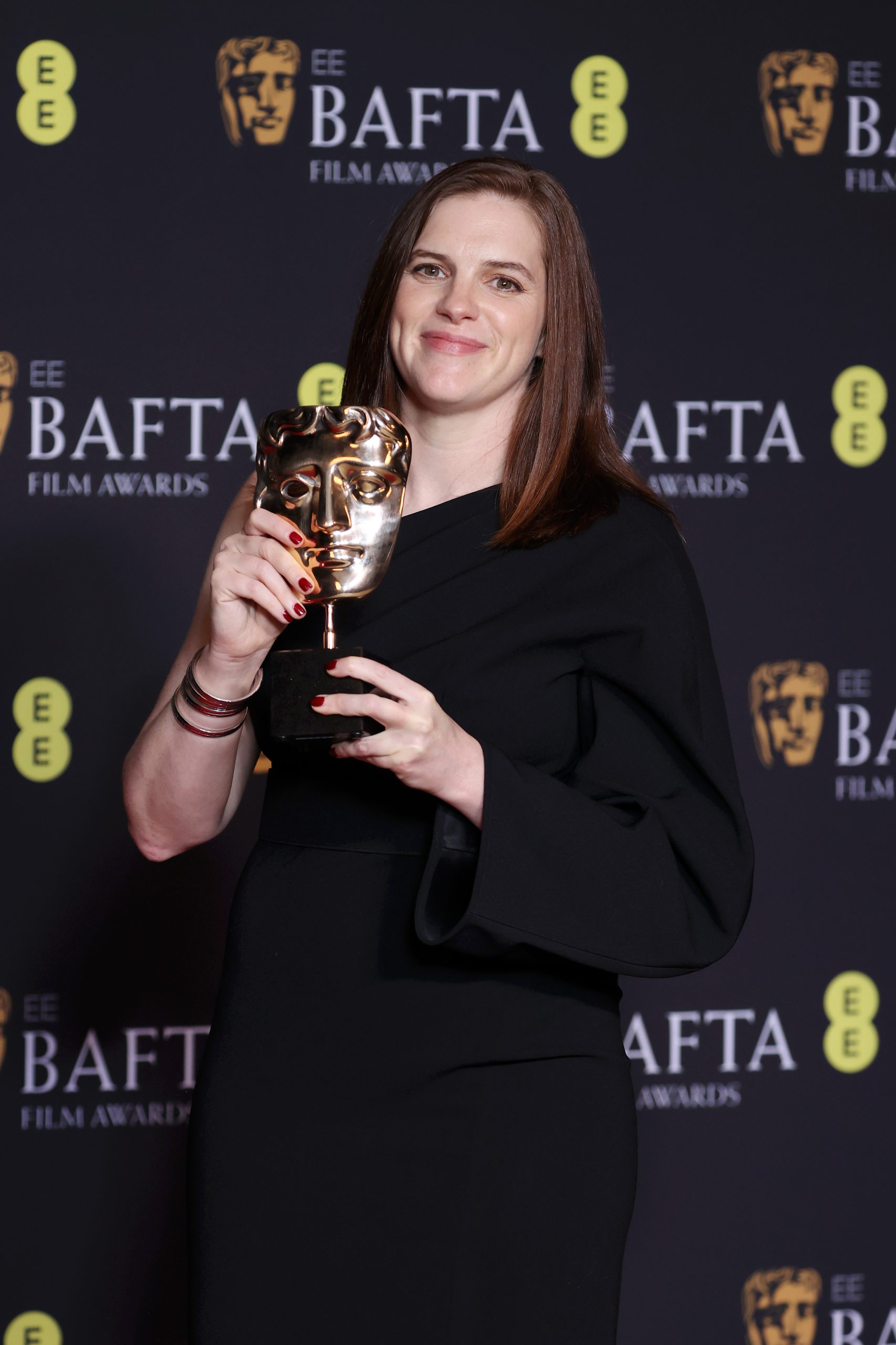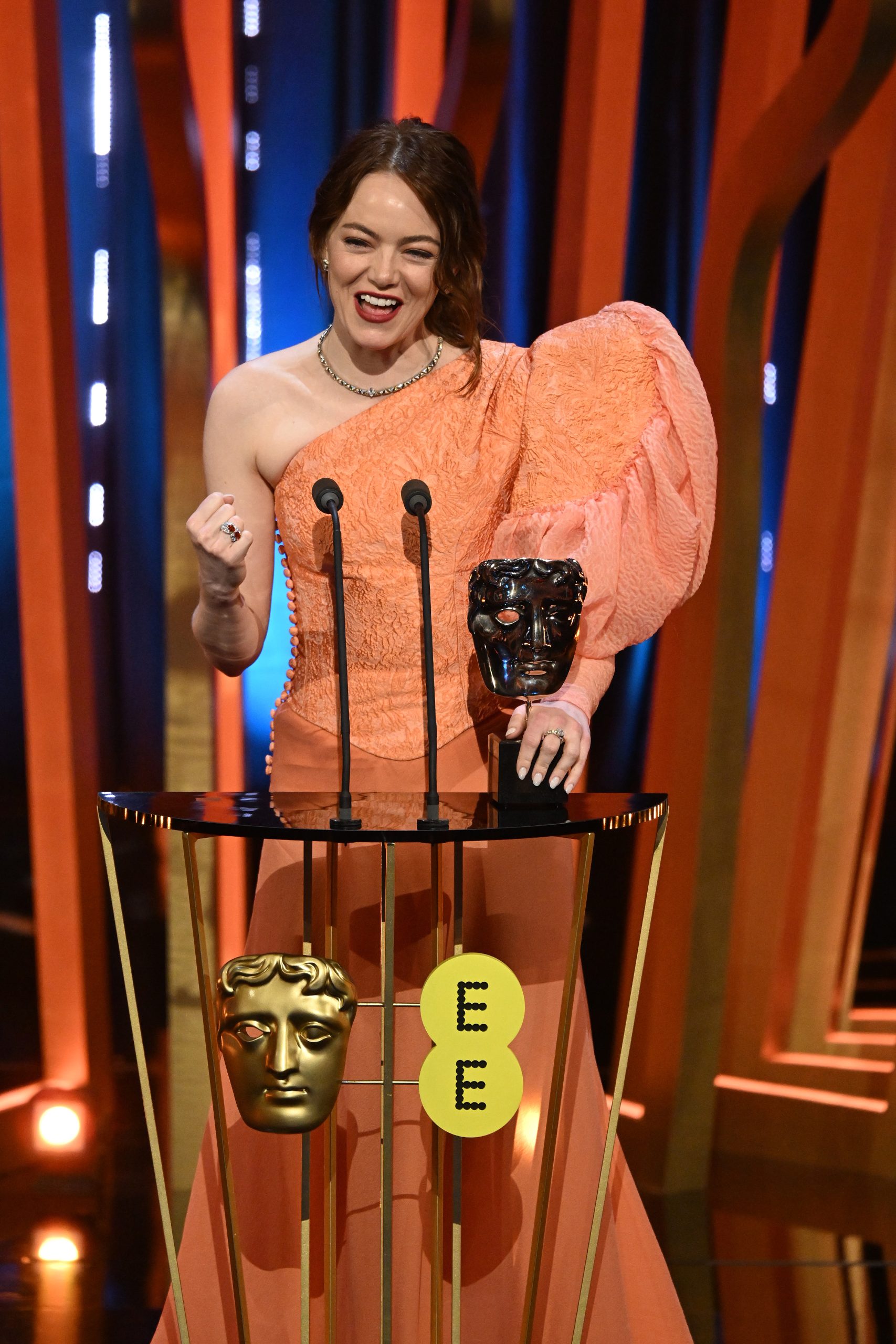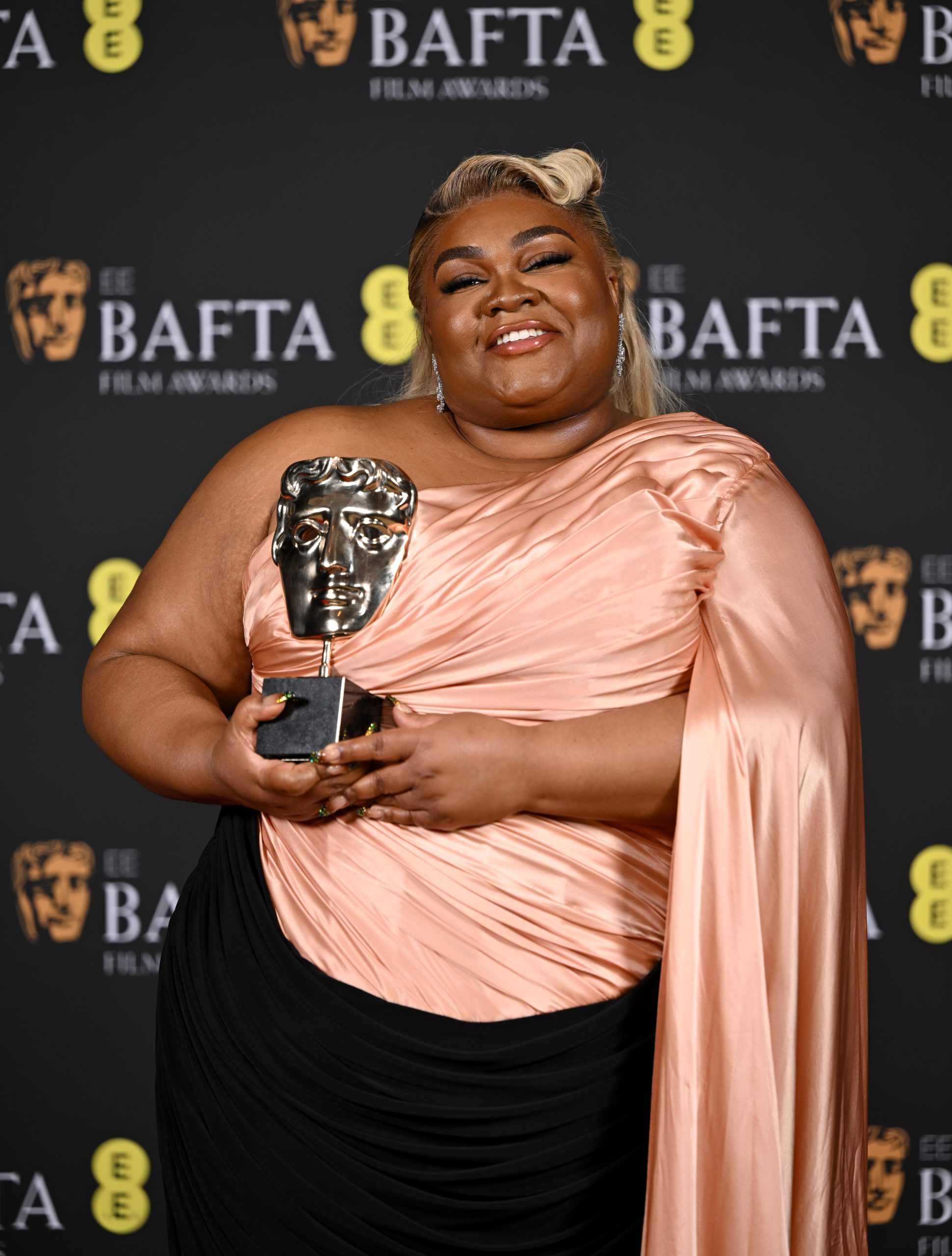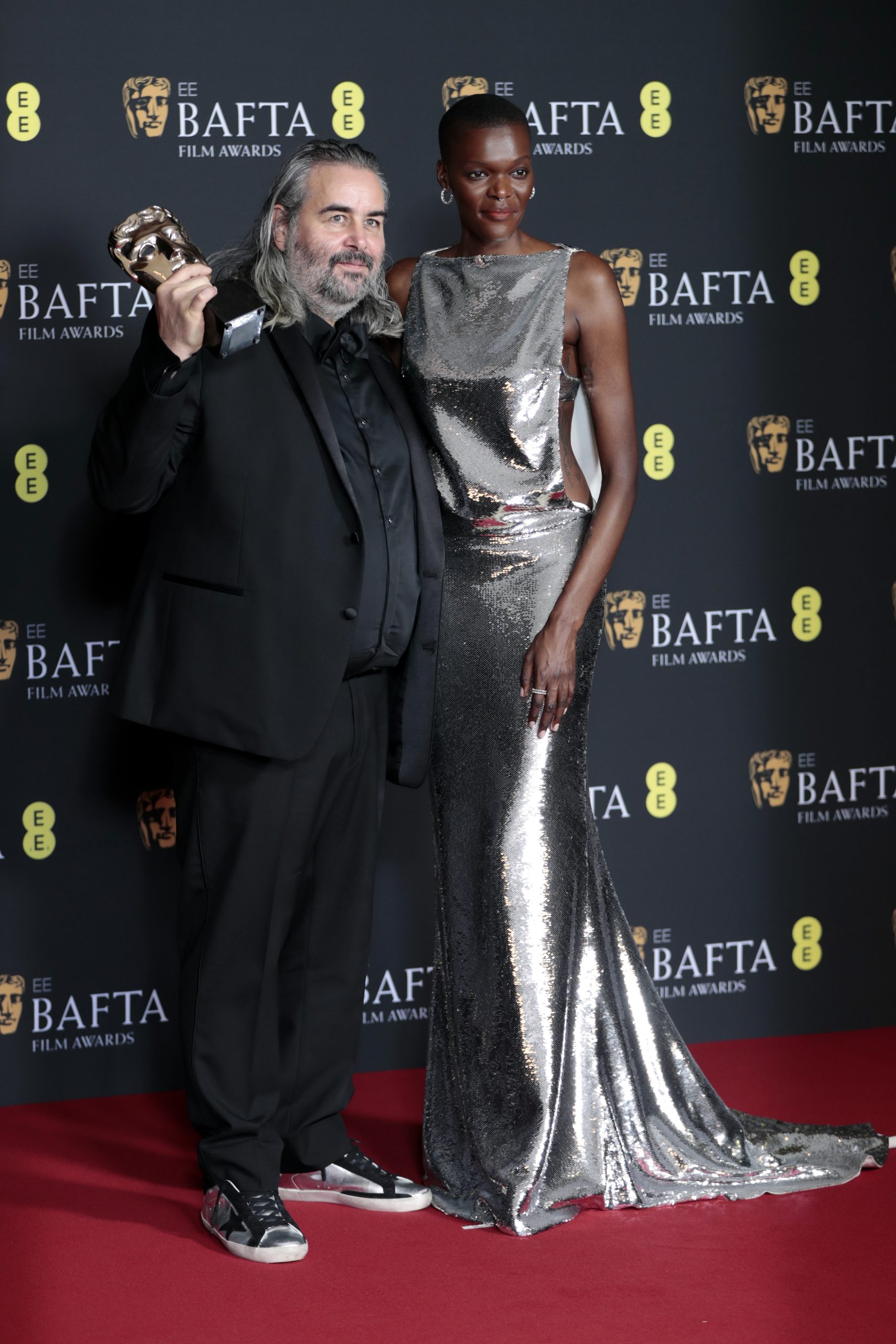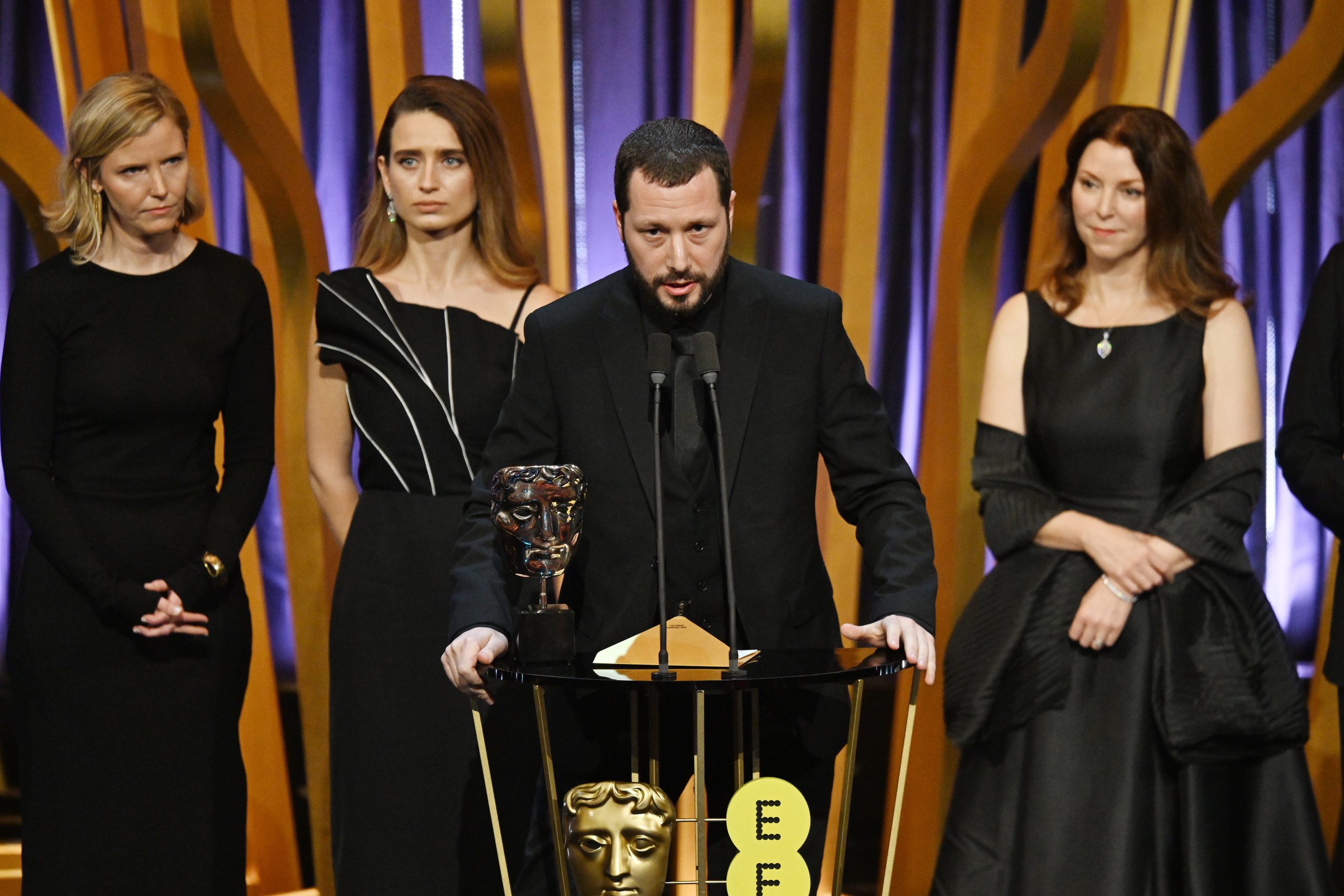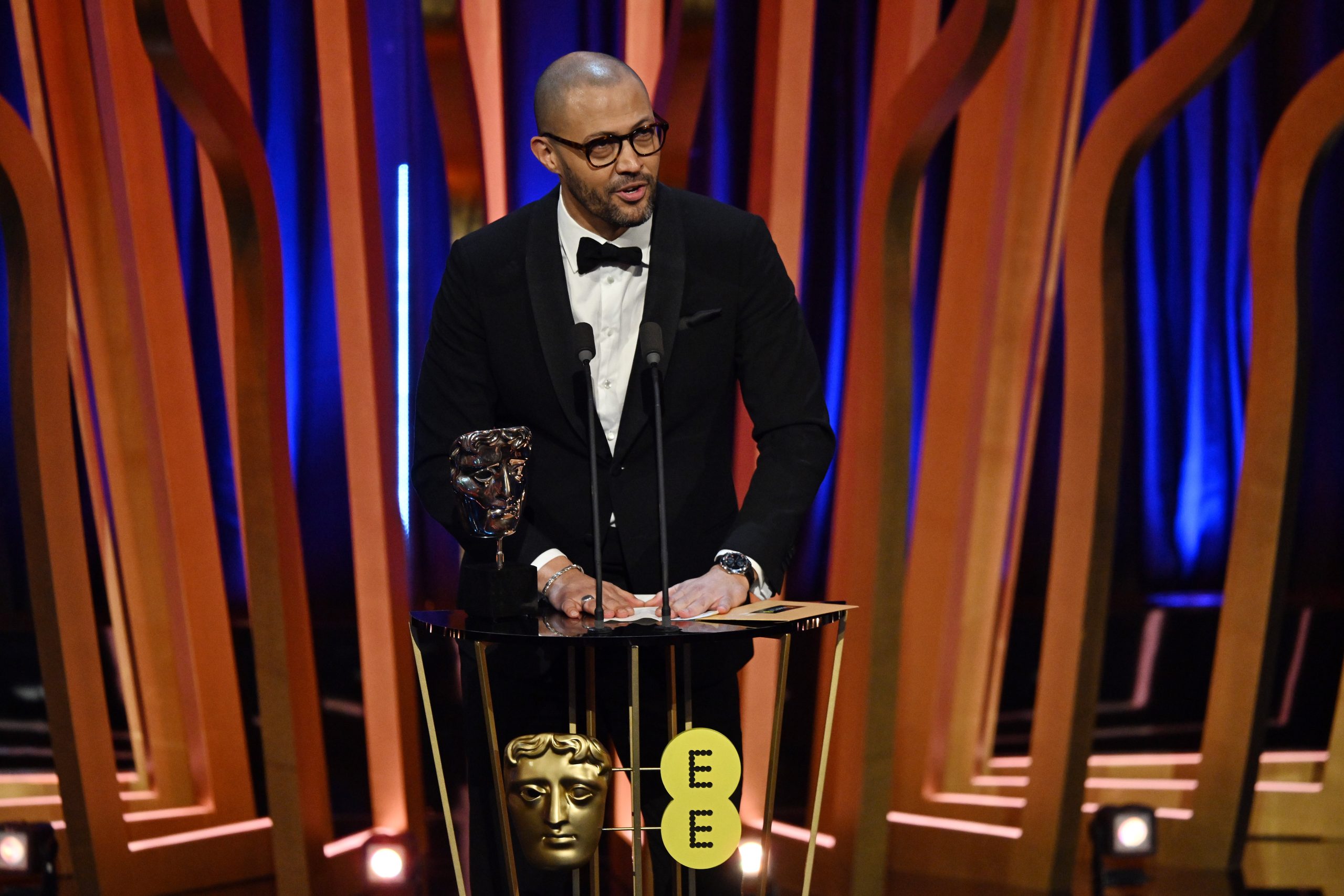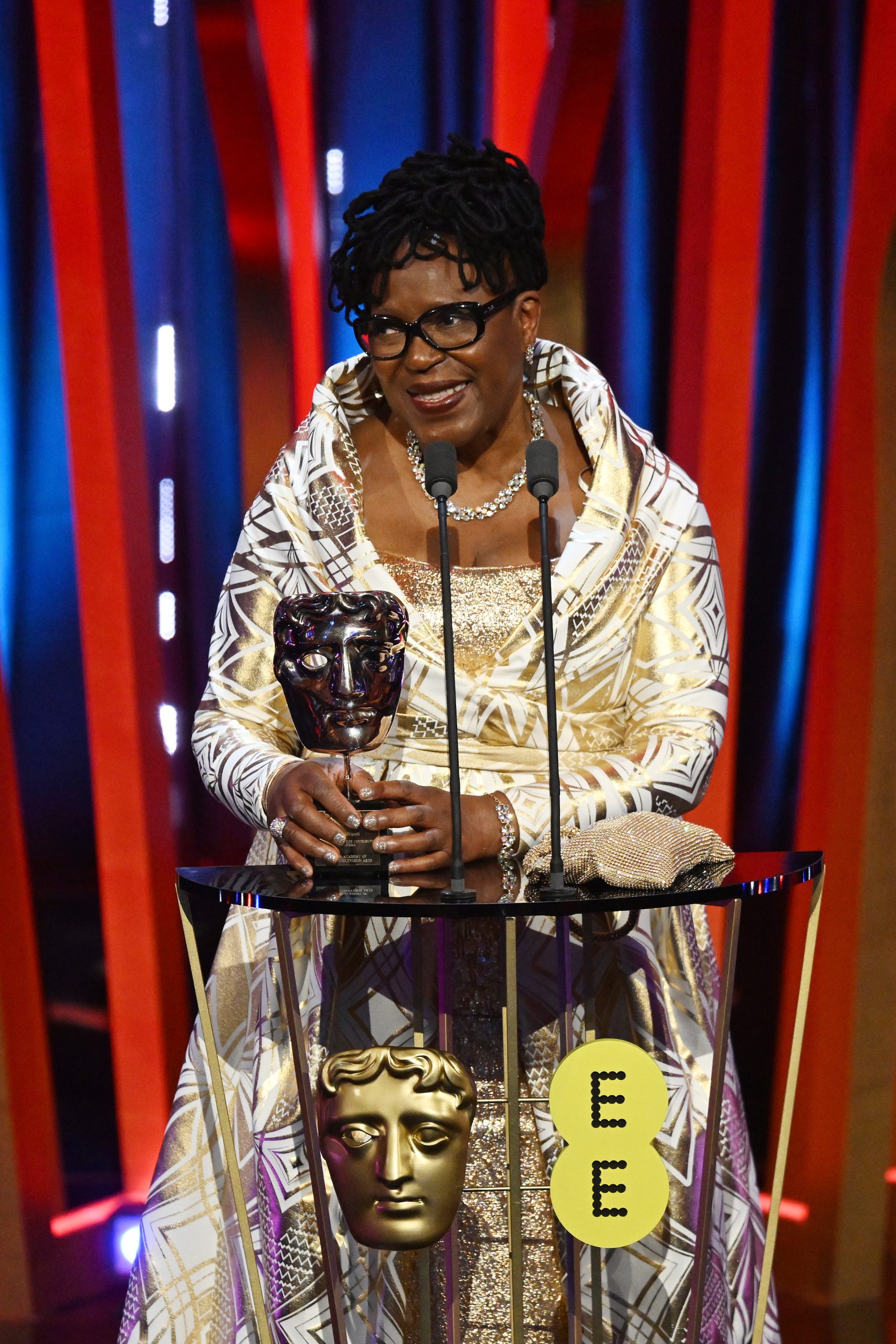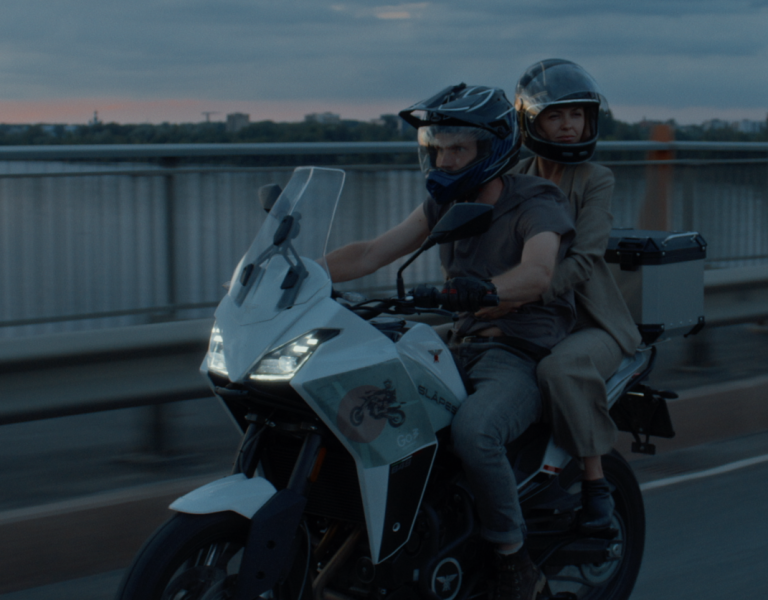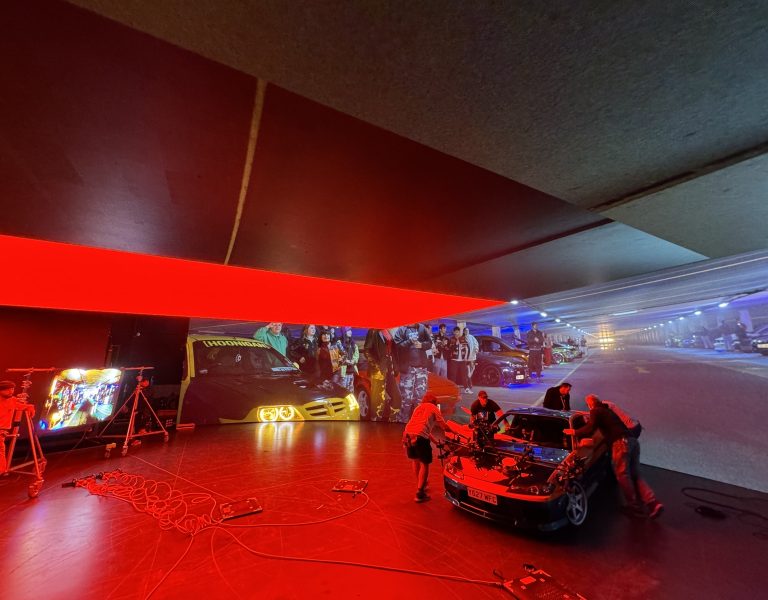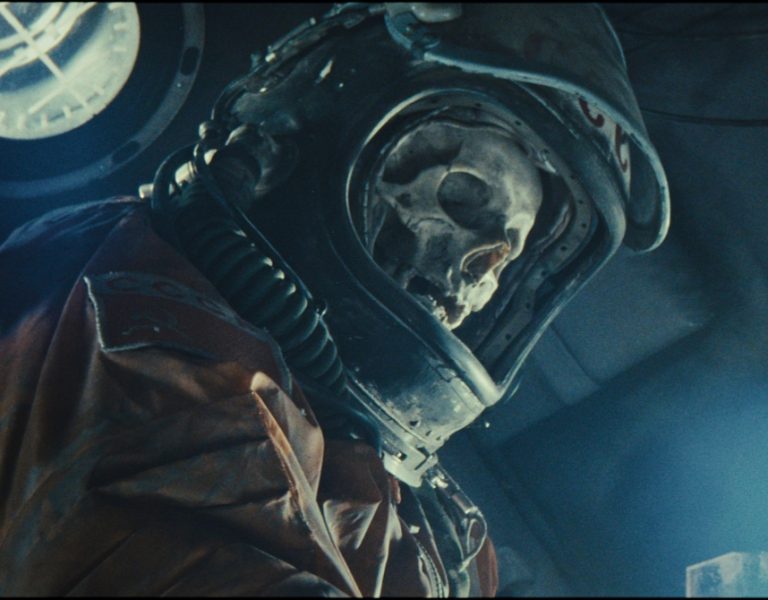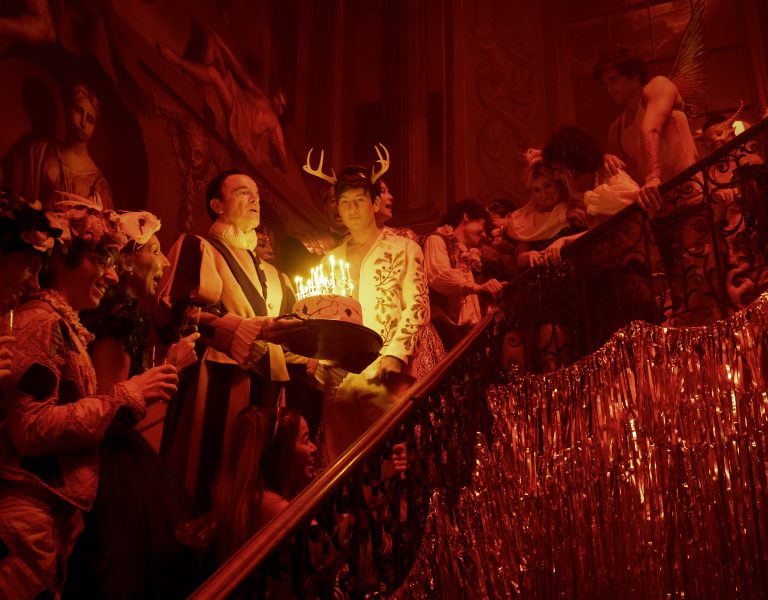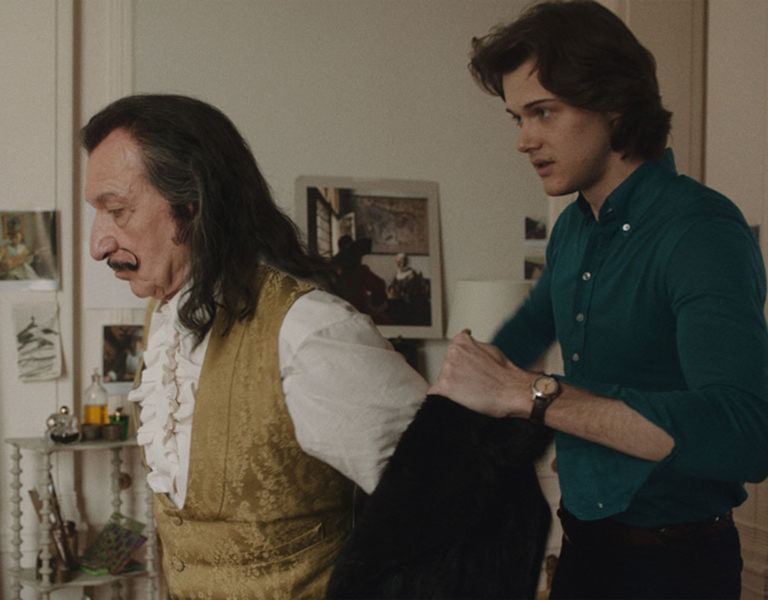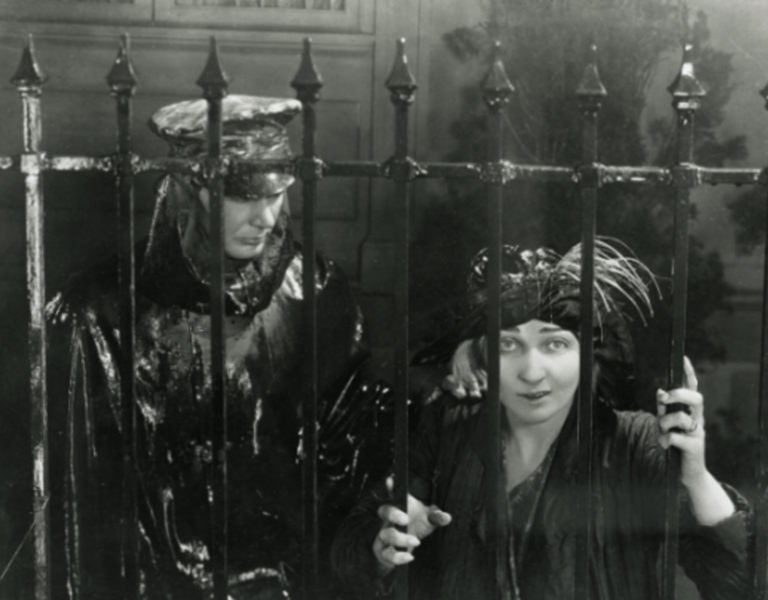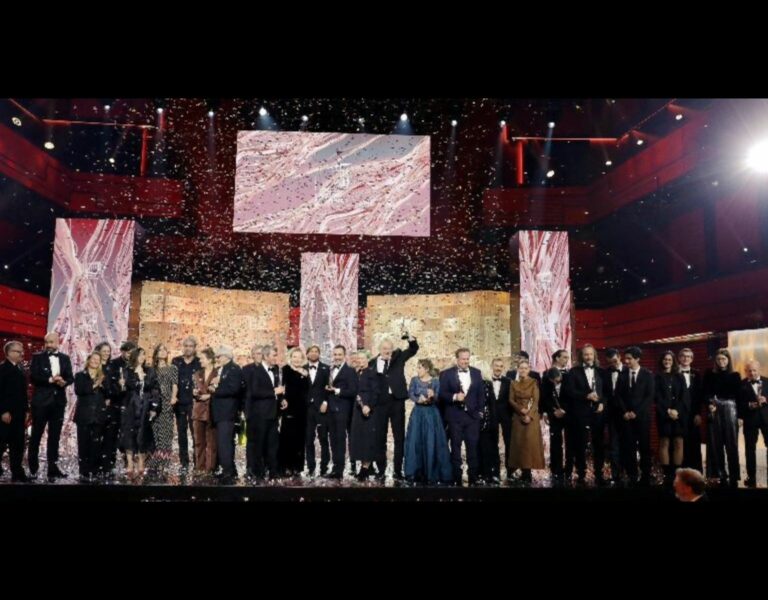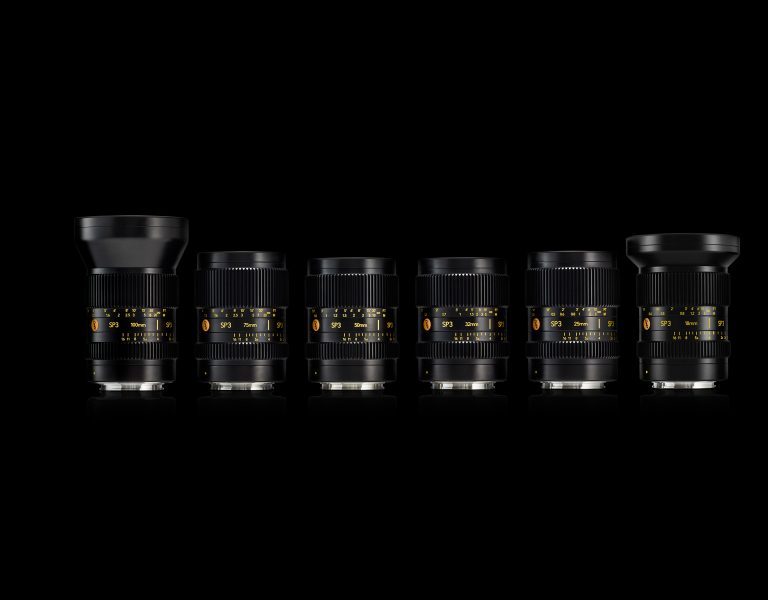Oppenheimer wins seven BAFTAs, including Best Cinematography, Film and Director
Feb 19, 2024
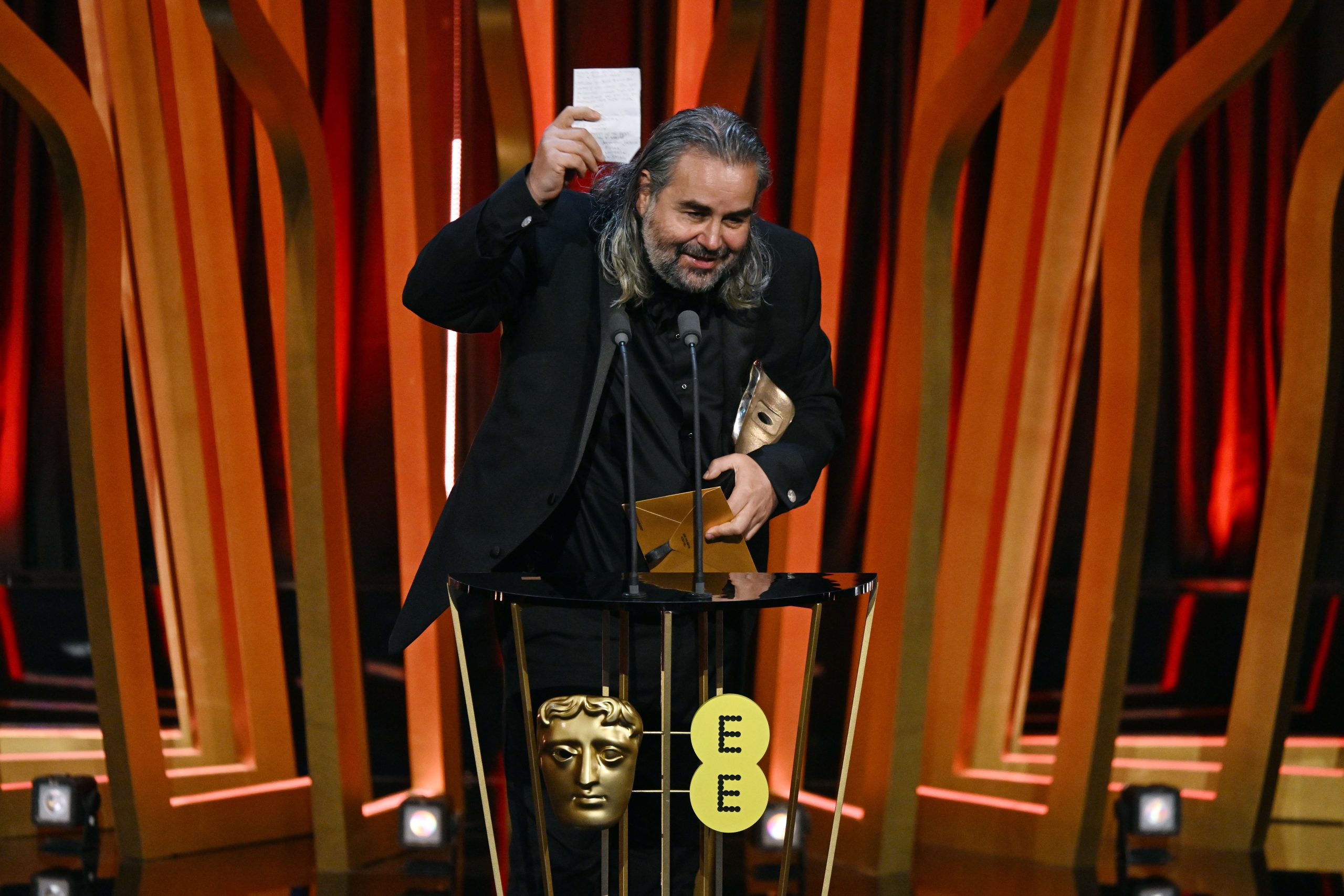
The very best in film of the past year was celebrated as the winners of the 2024 EE BAFTA Film Awards were announced. Oppenheimer was triumphant on the night, winning seven BAFTAs for Best Cinematography for Hoyte van Hoytema ASC FSF NSC; Director for Christopher Nolan, Film; Leading Actor for Cillian Murphy; Supporting Actor for Robert Downey Jr; Editing for Jennifer Lame, and Original Score for Ludwig Göransson.
Poor Things won five BAFTAs: Leading Actress for Emma Stone; Costume for Holly Waddington, Make Up & Hair for Nadia Stacey, Mark Coulier, and Josh Weston; Production Design for Shona Heath, James Price, and Zsuzsa Mihalek; and Special Visual Effects for Tim Barter, Simon Hughes, Dean Koonjul, and Jane Paton.
The Zone of Interest won three BAFTAs: Outstanding British Film, Film Not in the English Language, and Sound for Johnnie Burn and Tarn Willers. It is the first film to win both the Outstanding British Film and Film Not in the English Language categories.
The Holdovers won two categories: Supporting Actress for Da’Vine Joy Randolph, and Casting. Anatomy of a Fall won Original Screenplay. American Fiction won Adapted Screenplay. Earth Mama was presented with the award for Outstanding Debut by a British Writer, Director or Producer.
20 Days in Mariupol won Documentary; The Boy and the Heron won Animated Film; Jellyfish and Lobster won the British Short Film award; while the BAFTA for British Short Animation was won by Crab Day. June Givanni was presented with the Outstanding British Contribution to Cinema award.
The BAFTA Fellowship was presented to actress and director Samantha Morton. The Fellowship is the highest accolade bestowed by BAFTA in recognition of an individual’s outstanding and exceptional contribution to film, television or games across their career. The EE Rising Star Award, the only award voted for by the public, went to Mia McKenna-Bruce (How to Have Sex – Molly Manning Walker’s directorial debut).
In his acceptance speech after winning the Best Cinematography award, Hoytema acknowledged the significance of the number of nominated films in the category having been shot on film: “Celluloid is alive and kicking. Four out of five nominated films were shot on celluloid and it proves that film is resilient and wanted more by audiences than ever.”
In the winners press conference backstage, British Cinematographer asked Hoytema about the power of shooting on film as well as capturing Oppenheimer on large-format film stock. “I really believe that the way I see the world is best represented by the way celluloid sees the world. There are different technologies, there’s digital technology and analogue technology, they have always been immensely different for me and when at some point there was a slight threat that film was about to disappear I couldn’t necessarily find myself in digital technology as I found myself in film. We could have a long technical conversation about why that is but there is still not a format that in such a beautifully naturalistic way reproduces light and dynamics and colours as film does as well as the large format because when you shoot on large format you’re capable of shooting your film in such a high quality that is still not possible with digital technology, so for that you need film. I think celluloid is very important – four out of five films nominated for a BAFTA and a lot more films shot on film that are not nominated. The audience really responds in a different way to films that are shot on film and I thought that was very important to say when I had a chance.”
Speaking about working with Nolan, Hoytema said, “We’ve done four films together now. On the first film, I was very scared and didn’t know what was about to happen to me but gradually we got to know each other better and started to get more courageous together and we’ve been travelling all over the world, inventing new stuff, making crazy movies and finally we did Oppenheimer. I say finally but I hope this is halfway through our journey. It’s just one big pile up of great memories. Working with Chris, when we are scouting or on a film set, we are stripped of all the glamour and it’s down and dirty, up to our waste in mud or water and it’s very much about craft and getting things done. I love that and I’m very much about reacting to the elements or whatever the earth or the climate brings us.”
When questioned about whether there was a scene that was surprisingly difficult to shoot, Hoyte responded, “What surprised me very much is to grade a film and shoot on large format that is effectively all about faces. To make close-ups consecutively interesting as a filmmaker is one of the biggest challenges you can have because with action scenes you can bring out the big guns, but to shoot emotions and faces and to do that for three hours and still be able to have enough talking power in your last close-up is the biggest challenge, I think. Our job is also not to make things comfortable, our job is to figure out what the best way is to tell a specific story and I don’t think that is by making it easy on yourself.”
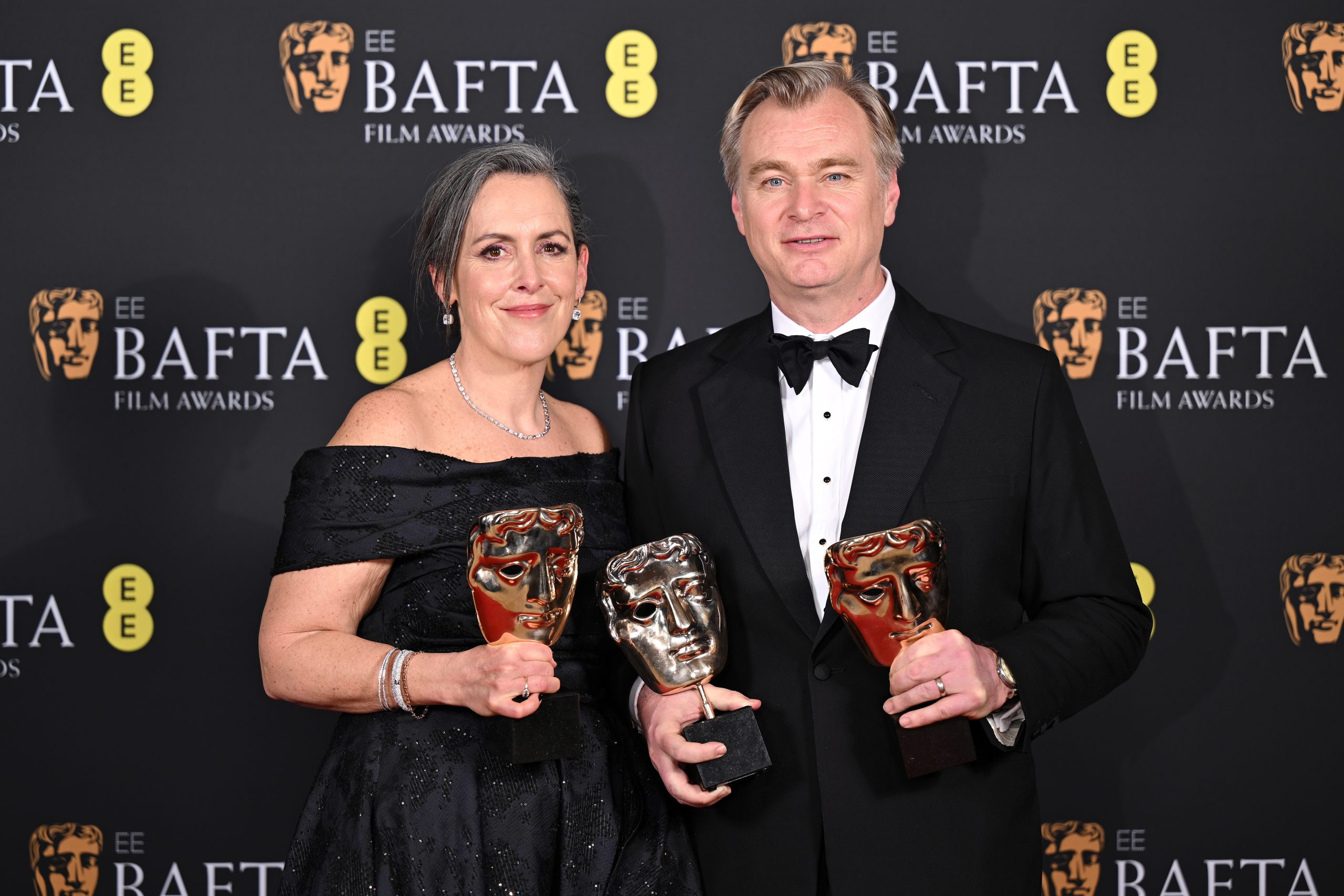
Christopher Nolan’s award marks a first BAFTA Director win for the filmmaker. “This is an incredible honour being back home and getting this from BAFTA in the festival hall where my mum and dad used to drag me to make me have some culture and some of it stuck,” said Nolan, taking to the stage to accept his award.
“I have so many people to thank for this – an incredible cast led by the peerless and fearless Cilian Murphy… an incredible crew, many of whom have been recognised by BAFTA with nominations tonight. Thank you for recognising the incredible work these people did for me. Thank you to Chuck Roven, to Kai Bird and Martin Sherwin who wrote the book American Prometheus which the film is based on, to Emma Thomas, our incredible producer, and thank you to Universal, led by the incomparable Dame Donna Langley. Thank you for letting us take on something quite dark and seeing the potential in that. Our film ends on what I think is a dramatically necessary note of despair but in the real world there are all kinds of individuals and organisations who have fought long and hard to reduce the number of nuclear weapons in the world and since its peak in 1967 they’ve done it by almost 90%. Of late that’s gone the wrong way so in accepting this, I do want to acknowledge their efforts and point out that they show the necessity and potential of efforts for peace.”
At the winners’ press conference, British Cinematographer asked Nolan why he felt his collaboration with Hoytema was so successful. “I love that side of things and I love what he does and he’s the best cinematographer working today. He’s also a lovely person and he’s wonderful to work with which lets us really explore things and have fun.”
Accepting the award for Best Film with members of the cast and crew of Oppenheimer, producer Emma Thomas – Nolan’s creative partner and wife – said, “This is an incredible honour… and not at all what I imagined when sitting at UCL Film Society with Chris and dreaming about making films for a living. I would not be up here if it was not for our esteemed director Chris – he is inspired and inspiring, he is brilliant, he is often infuriating, he is always right, and I’m incredibly grateful to him for letting me come along for this ride. Every single person who worked on this film brought their best.”
A full event report with more comment from the winners will appear in the March/April issue of British Cinematographer.
Words: Zoe Mutter
Enjoy more photos of the winners below…
